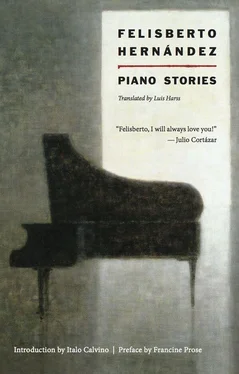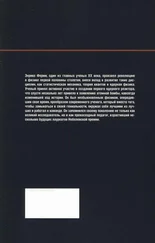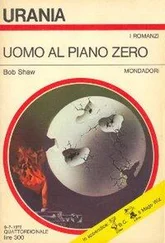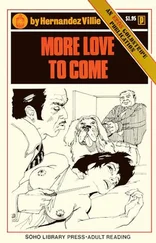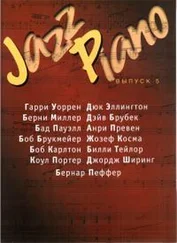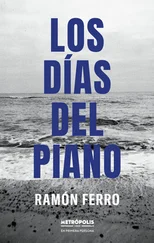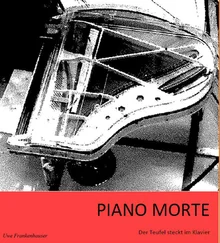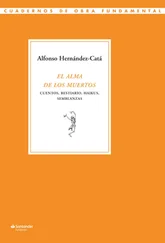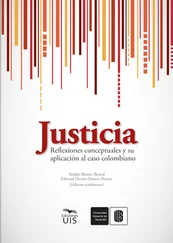Felisberto Hernandez - Piano Stories
Здесь есть возможность читать онлайн «Felisberto Hernandez - Piano Stories» весь текст электронной книги совершенно бесплатно (целиком полную версию без сокращений). В некоторых случаях можно слушать аудио, скачать через торрент в формате fb2 и присутствует краткое содержание. Год выпуска: 2014, Издательство: New Directions, Жанр: Современная проза, на английском языке. Описание произведения, (предисловие) а так же отзывы посетителей доступны на портале библиотеки ЛибКат.
- Название:Piano Stories
- Автор:
- Издательство:New Directions
- Жанр:
- Год:2014
- ISBN:нет данных
- Рейтинг книги:4 / 5. Голосов: 1
-
Избранное:Добавить в избранное
- Отзывы:
-
Ваша оценка:
- 80
- 1
- 2
- 3
- 4
- 5
Piano Stories: краткое содержание, описание и аннотация
Предлагаем к чтению аннотацию, описание, краткое содержание или предисловие (зависит от того, что написал сам автор книги «Piano Stories»). Если вы не нашли необходимую информацию о книге — напишите в комментариях, мы постараемся отыскать её.
Piano Stories
Piano Stories — читать онлайн бесплатно полную книгу (весь текст) целиком
Ниже представлен текст книги, разбитый по страницам. Система сохранения места последней прочитанной страницы, позволяет с удобством читать онлайн бесплатно книгу «Piano Stories», без необходимости каждый раз заново искать на чём Вы остановились. Поставьте закладку, и сможете в любой момент перейти на страницу, на которой закончили чтение.
Интервал:
Закладка:
For long moments during the lesson my grandmother settled in her shadow beyond the edge of the light, gathered into herself. She was closer to me than Celina, but at such moments she withdrew into the darkness of things so familiar that their presence is forgotten. At other times she was spontaneously moved to express thoughts I could never predict but always recognized immediately as hers. Some of those thoughts were abstruse, and — especially if they had to do with music — she used ridiculous words for them. They were always the same words and after a while I ignored them, like objects left lying around a room until you no longer notice them. But then suddenly they managed to stand out again, irritating me with what I thought was their devious attempt to seem new when they were old. I also hated the insistence with which she kept bringing them up, forcing me to take another look at them, as if to convince me of their value and make me regret the injustice I had committed in not recognizing them to begin with. Of course it’s possible that her thoughts were different each time and she just couldn’t find new words for them, no matter how hard she tried, so they ended up all sounding alike, as if she had changed the contents of a jar but when she showed it to me all I could see was the same old jar. Sometimes, after dragging out the same old words, she seemed to realize she was not only not saying what she meant but repeating herself endlessly. Then she was the one who got annoyed and, trying to be sarcastic but beginning to splutter, she said, “How about listening to your teacher? Or doesn’t she know more than you do?”
In Celina’s house — even when Celina wasn’t there — my grandmother’s rages were not dangerous. Something in that parlor cooled her off in time. It had to do with our feeling that we both had to be on our best behavior there. She was naturally kindhearted and many of my attitudes amused her. Although generally those attitudes were similar in style, she found them new if they occurred differently in different situations: she enjoyed recognizing things in me that were at once familiar and unpredictable. I can still see her laughing, her stomach bouncing under her apron and a sticky green paper bouncing up and down between her fingers as she wound it around a wire stalk when she was making artificial flowers: the stalks were always too thick, grotesquely misshapen where the gobs of paste made bulges in the paper, and out of proportion to the flowers. Her kerchief also bounced up and down, and so did the stub of the cigar she kept in her mouth. But she was also easy to anger, and then she became all fiery cheeks, curses, and grimaces and headed, in ponderous haste, for the spot where she hung a fancy riding crop with silver bands that had belonged to her husband.
In Celina’s house she hardly let out the hint of a threat, let alone a slap: I could sit next to her without worrying. Moreover, when Celina was too strict or forgot I hadn’t been able to study for some reason beyond my control, I tried to catch her eye or, if I dared not look her way, I summoned her with my will, concentrating my attention on her and hardening my silence. It took her a while to react, but finally I would hear her lumbering toward me like a great big heavy contraption on a rough road, blowing steam and making all sorts of strange noises. At those moments, when Celina’s cool surface took on jagged edges, when I was braking my cart and my grandmother was bearing down on us like an old steamroller, it seemed we had been invited to a small nightmare.
Across the piano keys, like a rail over sleepers, lay a long red pencil. I never lost sight of it because I wanted one just like it. When Celina picked it up to number the notes of the score for my fingering, the pencil was anxious to be allowed to write. Since Celina would not let it loose, it moved eagerly between the fingers that held it, its single pointed eye wavering as if in doubt and swinging back and forth. When it was allowed to approach the page, the tip of the pencil was like a snout sniffing out something only a pencil’s instinct could recognize, searching between the legs of the notes for a white spot it could bite into. Finally Celina would let it loose and, like a piglet suckling in quick, short bursts, it would cling hungrily to the white of the page, leaving little sharp footprints with its short black hoof and merrily wagging its long red tail.
Celina would make me spread my hands on the keys and, with her fingers, she bent mine back, as if she were teaching a spider to move its legs. She was more closely in touch with my hands than I was myself. When she made them crawl like slow crabs over white and black pebbles, suddenly the hands came upon sounds that cast a spell on everything in the circle of lamplight, giving each object a new charm.
Once Celina kept drumming something into me that I understood with my head but not with my hands. We reached a point where she was angry. Her anger grew faster than usual and took me by surprise, as if I had forgotten a pot on the fire until suddenly it boiled over. In her impatience she had already picked up the pretty red pencil, and I heard its sharp rap on my knuckles even before I had time to realize it was striking me. I had to divide my attention between many things coming at me from all sides, but gradually the pain took over until it stood out over everything else. An irresistible desire to cry was bloating up in me. I held it back with all my strength while a nightmarish silence fell about my ears and from my head and face down my whole body. Everything around me — the piano, the lamp, Celina still holding the pencil — radiated a strange heat. At that moment the objects were more alive than we were. Celina and my grandmother sat very still, smothered in the silence that seemed to flow from the watchful furniture in the dark corners of the room. In my first moment of surprise I had felt an emptiness in me which soon began to fill up with anguish. Then I had made a great effort to come out of the emptiness and let it fill up without me. Now I had taken a sort of jump back to the beginning of the silence, imagining Celina and my grandmother must also be filling it up with something. I thought I had felt them exchange a look that grazed my back, and that the look meant, “We had to punish him for his fault, but it wasn’t all that serious — and he’s suffering so much.” But this unhappy supposition was the sign for the river to burst its dam, and that was when my silence poured in. Rushing toward me in the current I had glimpsed — but not recognized — a belated thought that made a furtive appearance, lurking nearby, and then exploded: How could Celina be hitting and dominating me when I had secretly promised myself to dominate her? For a long time I had been hoping she would fall in love with me — if it hadn’t happened already — and my unhappy supposition of a minute before — that she felt sorry for me — was what had attracted and quickened its opposite: my private intention to dominate her.
I removed my hands from the keyboard and clenched my fists on my lap. No doubt to keep me from crying — I clearly remember I didn’t cry — she ordered me to go on with my lesson. I sat there for a long while refusing to raise my head or my hands, until she blew up again and said, “If he won’t take his lesson he may leave.” She went on talking to my grandmother and I stood up. We parted curtly at the front door and my grandmother and I headed into the night. As soon as we had passed under some big trees — the darkened magnolias — my grandmother threatened me with the beating that awaited me when we got home, not only for incurring Celina’s wrath but for refusing to go on with the lesson. I didn’t care what happened any more: I was thinking it was all over between me and Celina. Our story had ended sadly, and not just because she was older — by some thirty years — than I was.
Читать дальшеИнтервал:
Закладка:
Похожие книги на «Piano Stories»
Представляем Вашему вниманию похожие книги на «Piano Stories» списком для выбора. Мы отобрали схожую по названию и смыслу литературу в надежде предоставить читателям больше вариантов отыскать новые, интересные, ещё непрочитанные произведения.
Обсуждение, отзывы о книге «Piano Stories» и просто собственные мнения читателей. Оставьте ваши комментарии, напишите, что Вы думаете о произведении, его смысле или главных героях. Укажите что конкретно понравилось, а что нет, и почему Вы так считаете.
